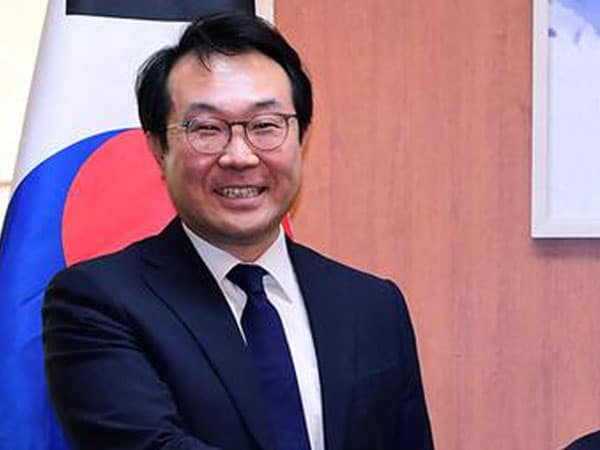Seoul [South Korea]: South Korea’s chief nuclear negotiator Lee Do-hoon on Thursday asserted that strong and tough sanctions imposed on North Korea will not cajole the communist nation to give up its nuclear weapons and to believe in the same would be an “illusion”.
“Sanctions are a means to deter North Korea from making bad decisions, but sanctions themselves cannot fundamentally resolve our problem,” Lee, who is the special representative for Korean Peninsula peace and security affairs, said at a conference here.
“North Korea persisted in its nuclear development through decades of sanctions and pressure. To believe that stronger sanctions and more pressure would make North Korea suddenly give up its entire nuclear program is an illusion,” Yonhap News Agency quoted the top South Korean negotiator as saying.
Lee’s remarks assume significance ahead of the meeting between South Korean president Moon Jae-in and US President Donald Trump slated to be held on April 11 in Washington DC.
It would also be the first meeting between the two leaders since the Hanoi summit in February between Trump and North Korean leader Kim Jong-un ended in a stalemate without any agreement, owing to Pyongyang’s demand for sanctions relief in exchange of the tasks done for denuclearisation so far.
Despite the collapse of the summit, Lee expressed optimism that “considerable progress had been made” and both the US and North Korea had cleared down some differences on certain issues “almost to the point of reaching an agreement”.
Lee underlined that a top-down approach “armed with political determination” and “meaningful working-level interaction” was the only possible and feasible way to break the current deadlock between the two countries over denuclearisation.
However, he cleared his stance that more “substantive” working-level discussions were needed to narrow down further differences.
“Some argue that the Hanoi summit concluding without an agreement demonstrates the limits of the top-down approach, but looking back at what we have done in the past year, it is clear that the top-down approach is still very valid and the limitations do not outweigh the merits,” Lee said.
“When the dialogue resumes, the substantive early harvest is of utmost importance,” he added.
On Tuesday, Trump said that his meeting with Kim ended abruptly without reaching an agreement as Pyongyang was not “ready for a deal”. “We had a walk. He wasn’t ready for a deal. That’s ok. Because we get along great,” he said while addressing the National Republican Congressional Committee.
Despite the breakdown of the Hanoi summit, Trump had maintained that the relationship with North Korea continued to be “good”.
Last month, Trump had removed additional “large-scale” US Treasury sanctions on North Korea in a bid to keep denuclearisation talks with the elusive state on track.
[source_without_link]ANI[/source_without_link]

